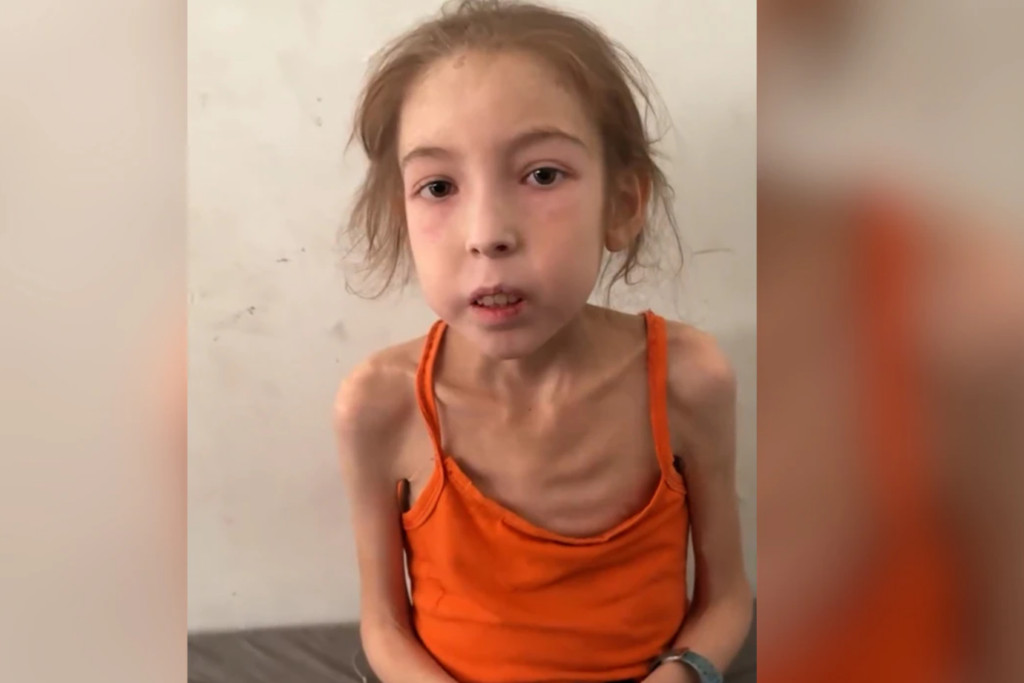An estimated 28,000 women and girls have been killed in Gaza since October 2023, according to stats released today from UN Women.
The estimated figure amounts to one woman and one girl being killed every hour during the attacks by Israeli forces, including thousands of mothers killed.
The death toll of the war on Gaza is incomprehensible, as is the trauma and devastation facing those left behind. The children without mothers. Mothers without daughters and sons. Generations of families destroyed.
But the past few weeks have accelerated the horror even further.
Humanitarian aid has been blocked now for nearly nine weeks since the collapse of the ceasefire in March 2025, leaving every woman and girl whose lives haven’t been taken in the violence now facing catastrophic levels of hunger.
Yet food and aid suppliers are mere kilometres away and could be made available immediately.
Aid agencies estimate 9,000 trucks full of supplies are waiting to enter Gaza. Today, five such trucks passed through, and four more will enter in the “coming days.”
Gaza needs at least 500 trucks entering every day to meet the population’s basic needs, according to the UN.
UN Women is one of the many aid agencies trying to deliver essential services, and notes the rising suffering due to the ongoing bombardment and blockade.
“Without an immediate significant surge in access to humanitarian aid, support and funding, countless lives hang in the balance,” according to the statement from UN Women.
“UN Women joins the UN Secretary-General in reiterating the call for an immediate ceasefire, the immediate restoration of unhindered humanitarian access, and the unconditional release of all hostages and those arbitrarily detained.”
The United Nations Population Fund is reporting severe shortages of essential medicines, with a doctor at Al-Awda Hospital in Gaza saying the food and medicine shortages are having a “devastating impact on pregnant women, breastfeeding mothers and children in general.”
The UN’s sexual and reproductive health agency, UNFPA, shares that there are an estimated 55,000 pregnant women in Gaza and that every missed meal for these women increases the risk of miscarriage, stillbirth and undernourished newborns. An estimated 11,000 pregnant women are already at risk of famine, while 17,000 pregnant and breastfeeding women are expected to need urgent treatment for acute malnutrition in the coming months.
UNFPA says it also has 190 trucks loaded with suppliers on the border with lifesaving supplies, including mobile maternity units, ultrasounds, portable incubators, hygiene and shelter supplies, and maternal health medicines.
Meanwhile, the Israeli Defence Force has issued yet another evacuation order, declaring residents of Khan Younis in the South must immediately leave for the al-Mawasi, a so-called “humanitarian zone”, before they make their “unprecedented attack”. Israeli Prime Minister Benjamin Netanyahu released a video declaring Israel has plans for an expanded offensive to take over the entire Gaza strip. “We are going to take control of all areas of the Strip, that’s what we are going to do,” he said.
This comes as women and children have been displaced multiple times since October 7 due to bombardment and evacuation orders from Israeli forces.
Australia has signed a separate statement, along with 21 other countries, including the three above, calling on Israel to immediately “allow a full resumption of aid into Gaza”, and declaring the territory’s population “faces starvation”.
But the statement is far too weak in responding to the unfolding catastrophic humanitarian crisis in Gaza, a crisis of hunger and a lack of medical supplies that can be addressed by the thousands of fully-stocked trucks awaiting entry. Australia, meanwhile, is missing from a list of countries condemning Israel over “egregious actions” in Gaza and warning of joint legal action if it does not halt its heightened military offensive. France, Canada and the United Kingdom are on the list.
“The Israeli Government’s denial of essential humanitarian assistance to the civilian population is unacceptable and risks breaching International Humanitarian Law,” the joint statement released by the British government said.
Earlier this month, 12-year-old Rashaf released a video from Gaza highlighting before and after images demonstrating the extent of the starvation she’s facing. She pleads to be taken for medical treatment and declares, “I wish I could go back to how I was.”
That video started circulating on April 30. Almost three weeks later, it’s highly unlikely anything on the five trucks that gained entry this morning will arrive for her.


